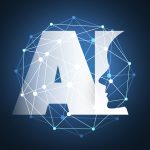A radical shift in the way enterprises of all scales address machine learning and data engineering is defined by Automated Machine Learning (AutoML). It is time-consuming, resource-intensive, and difficult to apply conventional machine learning approaches to real-world business concerns. In Data Science, Automated Machine Learning is one of the powerful fields of study. For … [Read more...] about Why is Automated Machine Learning Important?
Artificial Intelligence
Learn about the latest developments in artificial intelligence and how it is transforming industries around the world. Our website offers insights and resources for understanding AI and its applications.
Reputation Optimisation: How Big Data Can Help Brands Build Their Reputation Online
While reputation management for some businesses may revolve around accumulating favourable reviews and online ratings, other companies are beginning to adopt an altogether wider focus for their on the upkeep of consumer perceptions online. There is no brand in the world that exists without any customer issues. With this in mind, it's highly beneficial for companies to invest in … [Read more...] about Reputation Optimisation: How Big Data Can Help Brands Build Their Reputation Online
Why use Python’s NumPy for Array Programming
Arrays are one of the vital parts of the higher-order architecture in artificial intelligence and machine learning. They can represent images, text, and many types of data. In Python, which is one of the most favored programming languages for data scientists and AI engineers, NumPy' is the principal array programming library. Here we review the use of NumPy in the context of … [Read more...] about Why use Python’s NumPy for Array Programming
Improve Customer Service Experience: Take the AI Way
There is a lot more buzz around the need to improve customer experience than guidance on doing that. Major blame for the issues goes to the insatiable expectations of the customers. No matter how exceptional your customer service experience is, customers will get used to it within some time, and it won't feel exceptional. Hence, innovation is the fundamental driving force of … [Read more...] about Improve Customer Service Experience: Take the AI Way
ISPs Use Innovative AI Solutions to Meet COVID-19 Traffic Requirements
Artificial intelligence and machine learning technologies have been integral to solving the challenges of the COVID-19 pandemic. A number of countries around the world have used machine learning to enhance their contact tracing strategies, develop predictive analytics tools to identify future hotspots and come up with new solutions to improve social distancing. Some people were … [Read more...] about ISPs Use Innovative AI Solutions to Meet COVID-19 Traffic Requirements
What is artificial intelligence (AI)?
AI refers to the development of computer systems that are able to perform tasks that normally require human intelligence, such as recognizing patterns, learning from experience, and problem-solving.
AI systems can be trained to perform these tasks through the use of algorithms and machine learning techniques, which allow them to analyze and interpret data and make decisions based on that analysis. AI has the potential to significantly improve the efficiency and accuracy of many tasks, and is being applied in a wide range of industries and applications.
How is artificial intelligence used?
AI is used in a variety of industries, including healthcare, finance, retail, and transportation, to improve efficiency and productivity.
For example, in healthcare, AI can be used to analyze medical images or electronic health records to identify patterns and make diagnoses, while in finance, it can be used to identify fraudulent activity or optimize investment strategies. In retail, AI can be used to personalize customer experiences or predict demand for products.
What are some examples of artificial intelligence?
Examples of AI include self-driving cars, language translation software, and virtual assistants like Apple’s Siri or Amazon’s Alexa.
Other examples include chatbots that can handle customer service inquiries, predictive analytics tools that can forecast future outcomes, and recommendation engines that can suggest products or content based on user preferences.
What are the potential risks and benefits of artificial intelligence?
AI has the potential to revolutionize industries and improve our daily lives, but it also raises ethical concerns and the risk of job displacement. One concern is the potential for AI systems to perpetuate or amplify biases present in the data used to train them, leading to unfair or discriminatory outcomes.
There is also the risk that AI could be used to automate tasks or make decisions that have negative consequences for humans.
On the other hand, the benefits of AI include improved efficiency and accuracy, the ability to process and analyze large amounts of data quickly, and the potential to tackle complex problems that are difficult for humans to solve.
How can I learn more about artificial intelligence?
Datafloq offers a wide range of AI articles. There are many resources available for learning about AI, including online courses, books, and industry events.
Some popular online courses include those offered by Coursera, edX, and Udacity. There are also many books on AI that provide a broad overview of the field or delve into specific topics, such as machine learning or natural language processing.
Attending industry events, such as conferences or meetups, can also be a great way to learn about AI and network with others in the field. It is important to stay up-to-date on the latest developments in the field, as AI is a rapidly evolving field with many new advances and applications emerging all the time.






